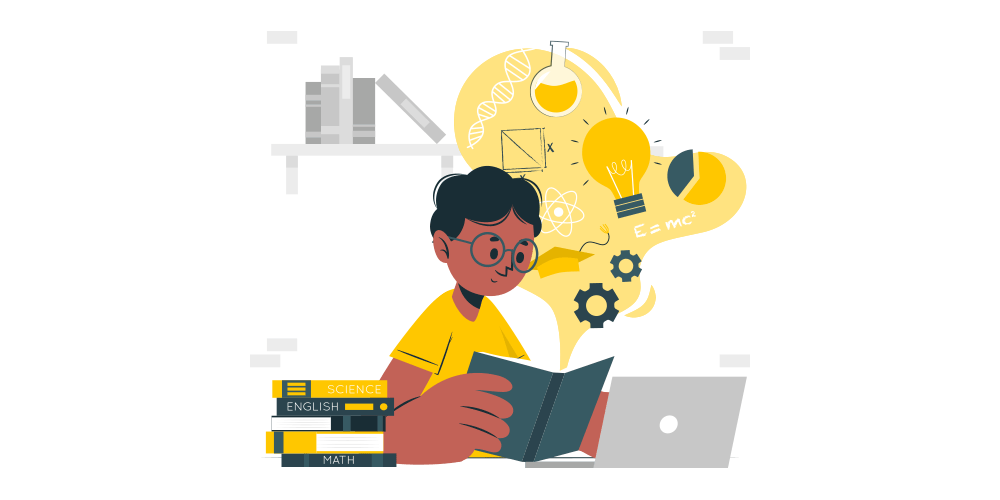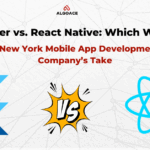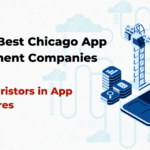
Education is undergoing significant transformation in the digital era. Technological advancements have expanded the learning environment beyond traditional classrooms. Consequently, the demand for personalized learning experiences has emerged as a primary focus for educators, parents, and students. One of the most effective methods to facilitate this is through the development of custom mobile applications. These applications can be specifically designed to address the individual needs of each learner, thereby maximizing the educational experience for every student.
This article will examine how custom mobile app development can transform education by providing highly personalized learning experiences, as well as the essential role that software development services play in this evolution.
The Need for Hyper-Personalized Education
Understanding the significance of hyper-personalization in contemporary education is essential before exploring the advantages and characteristics of custom mobile applications. Conventional educational practices typically adopt a “one-size-fits-all” methodology, expecting all students to learn uniformly and at the same speed. This model fails to recognize the diverse learning styles, abilities, and interests of individual students.
In contrast, hyper-personalized education acknowledges these variations by customizing the learning experience to cater to each student’s specific requirements. This approach is grounded in the recognition that every learner possesses unique attributes, and a tailored educational strategy will facilitate their success.
Why Personalized Learning Matters
- Engagement: When learning materials align with students’ interests and needs, their level of engagement significantly increases.
- Improved Results: Tailored learning experiences allow students to comprehend concepts at their speed, resulting in enhanced retention and understanding.
- Equity: Personalized learning approaches cater to individual student needs, providing every learner with the chance to succeed, irrespective of their background or preferred learning style.
In the following section, we will explore how custom mobile app development can support the transition towards hyper-personalized education.
How Custom Mobile App Development Supports Hyper-Personalized Education
Custom mobile app development facilitates highly personalized education by designing individualized learning experiences that cater to the distinct needs and preferences of each student. By incorporating elements such as immediate feedback, adaptive learning techniques, and gamification, these applications guarantee that students embark on the most effective and engaging educational path.
Tailored Learning Paths
Custom mobile applications enable educators and developers to design tailored learning experiences for students. These experiences can be modified according to an individual student’s strengths, weaknesses, and preferred learning styles. For instance, an application could evaluate a student’s performance on quizzes and assessments, subsequently adjusting the difficulty of upcoming lessons on their progress. This approach guarantees that students are neither disengaged by material that is overly simplistic nor overwhelmed by excessively challenging content. Whether you’re searching for Logo Design Services Near Me or advanced mobile app solutions, the key lies in personalization and adaptation to meet each student’s unique needs.
Furthermore, custom mobile applications can offer diverse content types to accommodate various learning styles. Some students may find visual resources such as diagrams and videos beneficial, while others may prefer interactive tasks or text-based materials. By utilizing software development services, app developers can create solutions that incorporate a range of educational tools, ensuring that each student remains engaged and learns effectively.
Real-Time Feedback and Progress Tracking
One significant benefit of utilizing custom mobile applications in education is the capacity to deliver immediate feedback. In traditional educational settings, students often have to wait for their assignments to be evaluated before they can gauge their performance. In contrast, custom applications enable students to receive prompt feedback on quizzes, assignments, and various activities, facilitating the identification of areas requiring improvement.
Moreover, real-time progress monitoring empowers students, educators, and parents to observe the student’s growth over time. The application can assess a student’s performance across multiple subjects, pinpoint areas where additional support may be necessary, and recommend personalized resources to aid their learning. By offering tailored insights, the application plays a crucial role in steering the student along their educational path and ensuring they remain focused on their goals.
Adaptive Learning Algorithms
A significant aspect of custom mobile applications in the educational sector is the incorporation of adaptive learning algorithms. These algorithms evaluate data derived from students’ interactions with the application and modify the learning experience as needed. For instance, if a student encounters difficulties with a specific subject, the application can provide supplementary resources or reframe the material to enhance comprehension.
Through the use of software development services, developers can embed advanced machine learning algorithms that persistently assess a student’s behavior, learning habits, and progress. This approach guarantees that the educational experience is continually refined to cater to the individual needs of each student, leading to a more efficient and effective learning journey.
Gamification and Motivation
Integrating gamification features into tailored mobile applications represents an effective method for enhancing the learning experience. Gamification entails the incorporation of game-like components, such as incentives, achievements, and competitive rankings, into the educational framework. Research indicates that this strategy significantly boosts student motivation and engagement, transforming the learning process into a more enjoyable and less burdensome activity.
Tailored mobile applications can leverage gamification to design individualized challenges and rewards that align with a student’s progress. For instance, an application might grant students points or badges upon the completion of tasks or the mastery of specific concepts. These incentives can be personalized to mirror the student’s educational journey, fostering a sense of achievement and encouraging continued effort.
The Role of Software Development Services in Custom Mobile App Development for Education
The significance of software development services in the realm of custom mobile app development for education is paramount in crafting specialized solutions that improve the learning experience. By integrating technical proficiency with educational knowledge, these services facilitate the creation of personalized applications that address the distinct requirements of both students and educators.
Collaboration with Educators
For custom mobile applications to effectively provide hyper-personalized education, it is crucial to establish a partnership between software development services and educators. App developers should engage closely with teachers to gain insights into the unique requirements of their students and the objectives of the curriculum. This partnership guarantees that the application is equipped with the appropriate features and functionalities to facilitate personalized learning.
Moreover, developers must comprehend how to present educational content in an engaging and impactful manner. By collaborating with educators, software development services can design custom mobile applications that incorporate a diverse range of learning resources, including videos, quizzes, and interactive exercises, thereby fostering a comprehensive and tailored educational experience.
Scalability and Flexibility
Custom mobile applications need to be both scalable and adaptable to serve a diverse array of learners effectively. This requirement is increasingly critical as the demand for tailored educational experiences rises. Developers can utilize software development services and work with a Conversion Rate Optimization Company to guarantee that the application can support a significant user base while maintaining optimal performance. Scalability also implies that the application can progress in response to shifting educational requirements.
For example, should a new pedagogical approach or curriculum gain traction, the application can be modified to incorporate these updates. This adaptability ensures that the application continues to be pertinent and efficient in addressing the needs of students, educators, and parents.
Data Security and Privacy
The advent of personalized education necessitates the management of sensitive information, encompassing students’ learning behaviors, advancements, and achievements. Custom mobile applications must be designed with stringent data security and privacy protocols to safeguard students’ information.
The role of software development services is vital in ensuring that these custom mobile applications adhere to data protection laws, including GDPR and COPPA. Developers are required to incorporate secure authentication techniques, encryption, and various other security measures to protect user data and uphold the confidence of both students and their parents.
Conclusion
Custom mobile app development is set to significantly influence the future of education. By harnessing the capabilities of personalized learning, immediate feedback, adaptive learning technologies, and gamification, these applications can offer students an educational journey that is specifically aligned with their unique needs and preferences.
The partnership between educators and software development services ensures that these applications are crafted to address the distinct requirements of both learners and instructors, leading to a more impactful and engaging educational experience. As technological advancements continue, the opportunities for custom mobile application development in the educational sector will expand, making highly personalized learning experiences more attainable for students globally.
Equipped with the appropriate tools, custom mobile applications can contribute to the establishment of a more equitable and effective educational framework, enabling students to realize their full potential and thrive in an increasingly digital landscape.





0 Comments